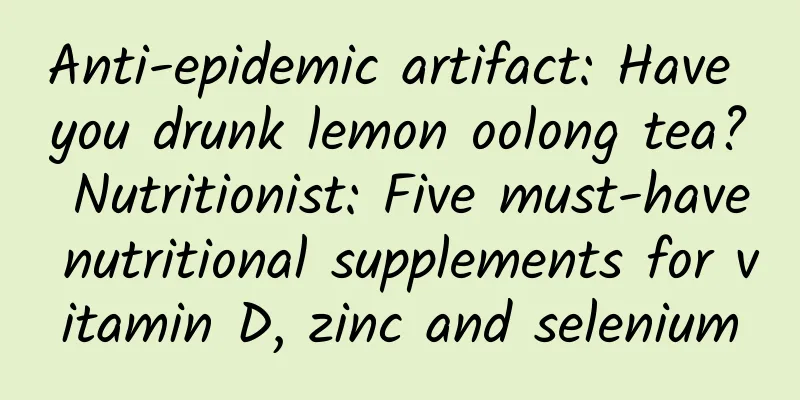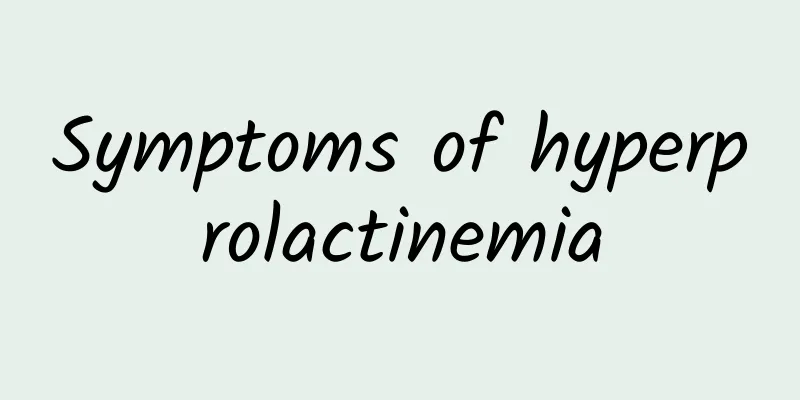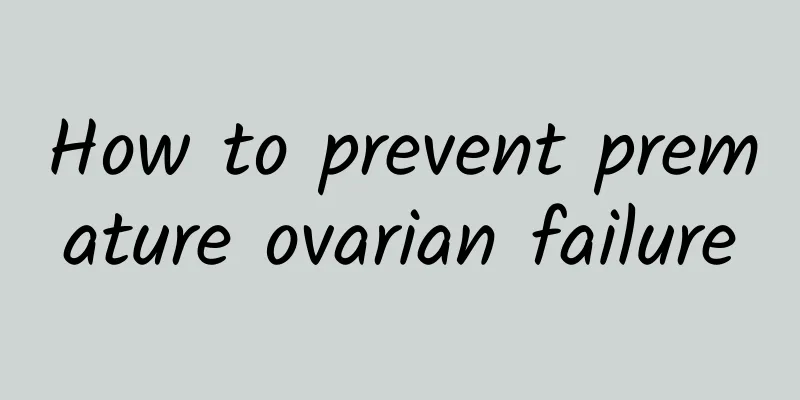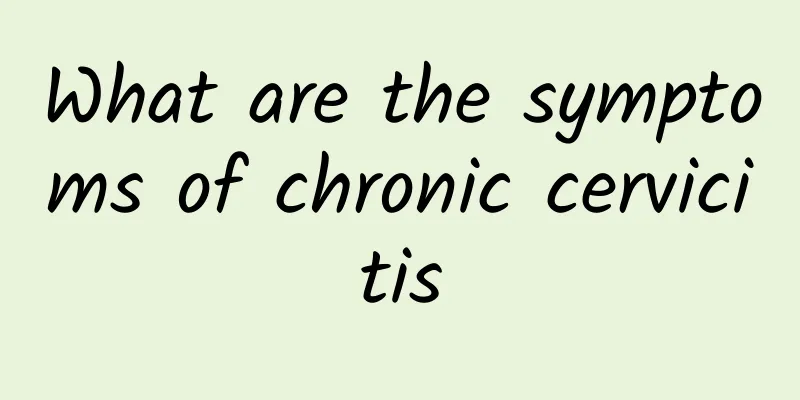Anti-epidemic artifact: Have you drunk lemon oolong tea? Nutritionist: Five must-have nutritional supplements for vitamin D, zinc and selenium

|
The total number of local cases in Taiwan has exceeded 3,000! As the epidemic situation becomes more serious, many people stay at home and eat a lot of junk food for convenience, or order takeout boxes, swallowing high-fat, high-salt, and high-sugar foods, which leads to rapid weight gain and may increase the risk of chronic diseases. Nutritionists remind that in order to avoid nutritional imbalance, in addition to an average intake of the six major balanced nutrients, it is very important to choose nutritional supplements appropriately, especially vitamins A, C, D, as well as zinc and selenium. It is also recommended to make a cup of anti-epidemic lemon oolong tea at home and drink it every day. Study: Maintaining good nutrition can reduce the risk and morbidity associated with COVID-19 Nutritionist Xie Yifang said that according to a study published in the journal Nutrition Reviews, maintaining good nutrition can improve well-being and reduce the risks and morbidity associated with severe acute respiratory syndrome and the new coronavirus disease (COVID-19). This review summarizes nutrition guidelines and nutrition advice provided by nutrition professionals to support dietary counseling. Nutritionist Xie Yifang also recommends a cup of anti-epidemic tea, which is mainly based on lemon, grapefruit or orange. These fruits are high in grapefruit essence, which has antiviral benefits according to research; it can be paired with black tea, green tea or oolong tea. Supplementation with vitamins A, C, and D, as well as zinc and selenium, may be beneficial for people at risk for respiratory viral infections When it comes to nutrition, most encourage eating fruits, vegetables, and whole grains. The guidelines emphasize the importance of minerals and vitamins (such as zinc and vitamins C, A, and D) in maintaining a properly functioning immune system. Emphasis is placed on supplementation of vitamins A, C, and D, as well as zinc and selenium, which may be beneficial for people who have, are at risk for, or are found to have a respiratory viral infection, or who are found to have a nutritional deficiency. Nutritionist Xie Yifang combined the content of this study with several other studies to summarize the dietary recommendations for daily life during the epidemic, hoping that the Chinese people will be wise and not rush to buy or overeat junk food that is high in oil, sugar and salt. Nutritionist Xie Yifang reminded that we should pay attention to our daily diet during the epidemic, and hoped that people would be wise and not rush to buy or overeat junk food that is high in oil, sugar and salt. (Photo provided by nutritionist Xie Yifang) People in high-risk groups or those with little sunlight exposure can take 2000 to 4000 IU/d of vitamin D orally. Nutritional supplements Vitamin, mineral, and probiotic supplements cannot treat or prevent COVID-19 infection, but they can help regulate immunity: Vitamin C: High doses of vitamin C (up to 2 g/day) can be taken orally for individuals at risk for respiratory viral infections. Vitamin D: People in high-risk groups or those with little sunlight exposure can take 2000 to 4000 IU/d of vitamin D orally. Zinc: Maximum zinc intake should not exceed 40 mg/day. Selenium: High doses of selenium (200 micrograms) can be used as an adjunctive therapy for treating infections but should not be used long-term. Six balanced nutrition essential for daily health care 1. Balanced Diet: (1) Whole grains and root vegetables: Many choices: brown rice, purple rice, germ rice, whole wheat bread, whole wheat noodles, whole wheat steamed bread, oats, whole buckwheat, whole corn, coix seed, millet, red quinoa (quinoa), sweet potato, potato, taro, pumpkin, yam, lotus root, red bean, mung bean, flower bean, broad bean, emperor bean and other unrefined foods, Choose less: instant noodles, biscuits, cakes and other processed products that are high in oil, sugar and salt. (ii) Beans, fish, eggs and meat Many choices: soybeans, edamame, black beans, unsweetened soy milk, tofu, fish, shrimp, oysters, clams, skinless chicken, duck, eggs. Shrimp, oysters, and clams are rich in zinc, which helps boost immunity. Fish contains omega-3 fatty acids, which are anti-inflammatory and help boost immunity. You should eat at least 180 grams of fish a week. Vegetarian friends can choose more nuts and flaxseed to supplement omega-3 fatty acids. Choose less meat products that are high in saturated fat and over-processed, such as: chicken skin, pork skin, duck skin, pork belly, pork belly, bacon, pig small intestine, pig large intestine, marbled beef and mutton chops, hot dogs, beef brisket, ham, sausage, hot dogs, meatballs, hot pot dumplings, red meat and fatty meat that have been processed with oil or fried, such as meat floss, meat jerky, triangular fried tofu, fried chicken, fried pork chops, fried shrimp, etc. This is because high intake of saturated fatty acids can cause inflammation in the body, which is not conducive to fighting viruses. Choose more dairy products containing natural lactic acid bacteria such as yogurt and sour milk. (III) Dairy products Multiple choices: yogurt, sour milk and other dairy products containing natural lactic acid bacteria. (IV) Vegetables Eat at least 3 bowls of vegetables every day, because fresh vegetables have a high water content but are rich in vitamins, minerals, dietary fiber, and phytochemicals. It can help us fight inflammation, enhance immunity and protect during the epidemic, and it must be consumed in sufficient quantities. (V) Fruits Fruits mainly provide vitamin C. Currently, there are all kinds of fruits in abundance, such as: mango, papaya, pineapple, guava, tomato, grape, banana, orange, watermelon, etc. You must eat 2 servings every day. (VI) Oils, fats, nuts and seeds Choosing vegetable oils that contain unsaturated fats and are liquid at room temperature is a healthier choice. A small number of vegetable oils rich in saturated fat (such as coconut oil and palm oil), or hydrogenated oils that have been hydrogenated, such as margarine, artificial butter, artificial vegetable butter, etc., have a higher degree of saturation and are solid at room temperature. Hydrogenated oils and processed foods containing hydrogenated oils, such as biscuits, French fries, donuts, potato chips and other fried or baked foods, may contain trans fatty acids, which are not conducive to epidemic prevention. Nuts and seeds are rich in protein, essential fatty acids, vitamin E, zinc, selenium and other nutrients that enhance immunity. The omega-9 monounsaturated fatty acids found in olive, sunflower seed, safflower oil and nuts have antioxidant, antibacterial and antiviral properties. Nuts include peanuts, melon seeds, sunflower seeds, sesame seeds, cashews, almonds, walnuts, macadamia nuts, etc. Try to choose foods that are less processed than their original form Nuts and seeds are rich in protein, essential fatty acids, vitamin E, zinc, selenium and other nutrients that enhance immunity. 2. Multiple parts filled with water (including soups, drinks) Adults should drink 12 cups a day, children 4-5 cups a day, teenagers 7-11 cups a day, and seniors 9-13 cups a day. 3. Less salt and sugar High salt and high sugar levels will reduce immunity, making it easy for the body to develop from mild symptoms to severe symptoms during the fight against the epidemic. So those who are rushing to buy instant noodles, snacks, biscuits, and ice cream should think about it. Many medical journals have shown that many people are desperately eating junk food during the epidemic prevention period, which is not conducive to disease control. 4. Take probiotics If COVID-19 patients have diarrhea, they can supplement with probiotics. Some probiotics can reduce viral infections, and probiotics with clinical research reports can be selected. 5. Drink less alcohol Drinking alcohol will reduce your ability to fight viruses. Please do not drink alcohol during the epidemic. In addition, nutritionist Xie Yifang also recommends a cup of anti-epidemic tea, which is mainly based on lemon, grapefruit or orange. These fruits are high in grapefruit essence. According to research, grapefruit essence has antiviral benefits; it can be paired with black tea, green tea or oolong tea. Kumquat has the highest content of pomelo-derived substances in food, followed by grapefruit. Therefore, if you choose hand-shaken drinks, you can choose sugar-free kumquat lemon tea (such as: Kumquat Worship Guanyin), grapefruit tea (such as: Red Pomelo Jade, Fragrant Pomelo Lei Monroe, Grapefruit Fruit Tea), orange tea (such as: Orange Jade, Jade Orange, Jade Orange) Remember to choose citrus fruits with high pomelo content and add black tea, green tea, or oolong tea without adding sugar. This kind of drink is healthy and helps prevent the epidemic: (Photo provided by nutritionist Xie Yifang) Iced lemon tea Ingredients: half a lemon, 500CC of tea (green tea, black tea, oolong tea), and appropriate amount of ice cubes. Method: Put all the ingredients into a food processor and blend until finely ground. Benefits: Lemons contain naringenin, which recent medical studies have shown can fight COVID-19. Black tea contains theaflavins, while green tea and oolong tea contain catechins. Medical research has confirmed that they have strong antioxidant properties. (Photo provided by nutritionist Xie Yifang) Teacher Xie Yifang's Nutrition Classroom |
Recommend
Uterine fibroids can also be seen through uterine bleeding
Uterine fibroids can also be seen through uterine...
How to prevent cervical hypertrophy
Cervical hypertrophy is a manifestation of cervic...
Learn about ovarian cyst prevention measures
Ovarian cysts are common tumors of the female rep...
What to eat after menopause to delay aging
Dietary adjustments after menopause can help slow...
Can e-cigarettes help you lose weight? Quitting smoking is the best way to lose weight
The Internet is going viral: "Smoking e-ciga...
What is the effective way to treat vulvar leukoplakia?
Many women ask, how can I cure vulvar leukoplakia...
What are the complications of chronic pelvic peritonitis?
Pelvic peritonitis is a common gynecological dise...
Nursing measures for patients with heavy bleeding during ectopic pregnancy
Ectopic pregnancy is a common gynecological disea...
Why is menopause always incurable?
In the modern 21st century, medical technology is...
Red marks on health checkup but no attention paid to abnormalities of three highs may indicate hidden dangers
Chronic diseases are also called "lifestyle ...
What should I pay attention to after endometrial hyperplasia surgery?
I believe that everyone does not know much about ...
Drinking water not only quenches thirst but also makes your brain sharper
We’ve all heard that drinking water can boost met...
Three major misunderstandings in the treatment of chronic pelvic inflammatory disease
Misconceptions in the treatment of chronic pelvic...
What are the consequences of a woman's hydatidiform mole?
Hydatidiform mole is a pregnancy-related disease ...
What are the symptoms of pelvic peritonitis?
The fast-paced life of modern people brings great...









